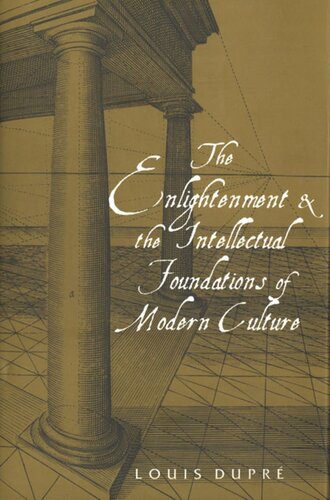

Most ebook files are in PDF format, so you can easily read them using various software such as Foxit Reader or directly on the Google Chrome browser.
Some ebook files are released by publishers in other formats such as .awz, .mobi, .epub, .fb2, etc. You may need to install specific software to read these formats on mobile/PC, such as Calibre.
Please read the tutorial at this link: https://ebookbell.com/faq
We offer FREE conversion to the popular formats you request; however, this may take some time. Therefore, right after payment, please email us, and we will try to provide the service as quickly as possible.
For some exceptional file formats or broken links (if any), please refrain from opening any disputes. Instead, email us first, and we will try to assist within a maximum of 6 hours.
EbookBell Team

4.1
20 reviewsThe prestige of the Enlightenment has declined in recent years. Many consider its thinking abstract, its art and poetry uninspiring, and the assertion that it introduced a new age of freedom and progress after centuries of darkness and superstition presumptuous. In this book, an eminent scholar of modern culture shows that the Enlightenment was a more complex phenomenon than most of its detractors and advocates assume. It includes rationalist as well as antirationalist tendencies, a critique of traditional morality and religion as well as an attempt to establish them on new foundations, even the beginning of a moral renewal and a spiritual revival.
The Enlightenment’s critique of tradition was a necessary consequence of the fundamental modern principle that we humans are solely responsible for the course of history. Hence we can accept no belief, no authority, no institutions that are not in some way justified. This foundation, for better or for worse, determined the course of the following centuries. Despite contemporary reactions against it, the Enlightenment continues to shape our own time and still distinguishes Western culture from any other.